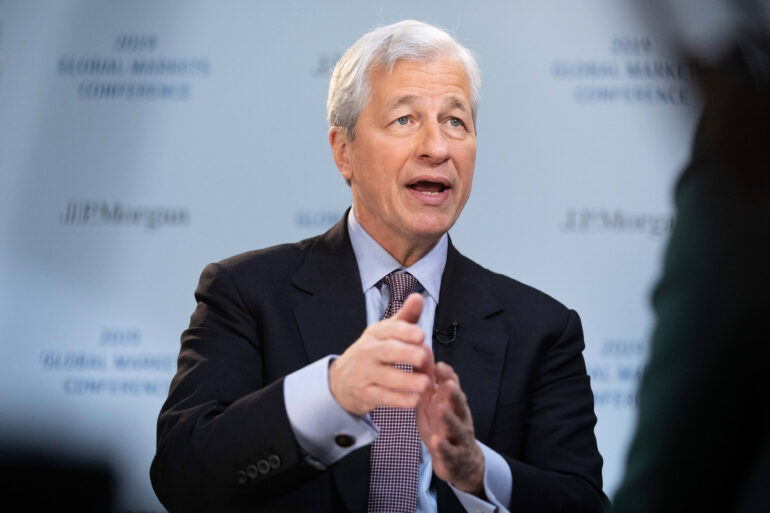TL;DR:
- JPMorgan CEO Jamie Dimon envisions AI’s pervasive role in every aspect of the company’s operations.
- AI models and technologies will continually evolve, enhancing efficiency and accuracy.
- AI’s potential applications range from error reduction to equity hedging and customer service.
- Dimon acknowledges AI’s job-displacing potential but sees a future with shorter workweeks and improved healthcare.
- Concerns persist about AI misuse, especially in cyberspace, but regulatory safeguards are expected.
- JPMorgan plans to redeploy displaced workers to new roles within the organization.
Main AI News:
In a recent interview with Bloomberg, JPMorgan CEO Jamie Dimon shared his vision of the future, one where artificial intelligence (AI) takes center stage in revolutionizing the financial giant’s operations. Dimon boldly declared that AI has the potential to permeate “every single process” within the organization, signaling a paradigm shift that could see humans replaced in certain roles.
Dimon’s optimism about the transformative power of AI is palpable. He anticipates a future filled with an array of AI models, tools, and technologies that will continuously evolve and adapt. “It’s a living, breathing thing,” he mused, highlighting the dynamic nature of AI’s potential.
The JPMorgan chief elaborated on the broad spectrum of applications, emphasizing that AI could be seamlessly integrated into various facets of their business. From error reduction and trading strategies to risk management, research, and database management, Dimon envisions AI playing a pivotal role in enhancing efficiency and accuracy across the board.
“AI might serve as a co-pilot, or it could replace human involvement entirely,” Dimon acknowledged. Already, AI has assumed a significant role in the realm of equity hedging and idea generation, thanks to its prowess in handling vast language models. Moreover, the ripple effect of AI could extend to customer service, further enhancing the client experience.
Dimon proudly noted that JPMorgan is at the forefront of AI research, boasting an impressive team of “top scientists from around the world.” While the advancement of AI is undeniable, he candidly addressed the elephant in the room – the displacement of human jobs. “Of course,” he conceded, AI will replace some jobs, as technology has historically done.
However, Dimon urged people to take a step back and view the bigger picture. Technological advancements have consistently reshaped the employment landscape, and he predicts a future where workweeks are shorter and breakthroughs in healthcare extend human lifespans. In his eyes, technology has been an unequivocal force for good.
Yet, he acknowledges the dark side of emerging technologies, particularly the misuse of AI by malevolent actors, especially in the cyberspace domain. Despite these concerns, Dimon remains hopeful that regulatory safeguards will emerge to mitigate potential harm over time.
Dimon firmly believes that AI will bring “huge value” to the workforce. If JPMorgan does replace employees with AI, it envisions a future where displaced workers find new opportunities within the organization. “We expect to be able to get them a job somewhere local in a different branch or a different function,” he reassured, demonstrating the company’s commitment to its employees amidst the transformative AI revolution.
Conclusion:
JPMorgan’s commitment to integrating AI into all aspects of its operations reflects a growing trend in the financial market. The embrace of AI promises enhanced efficiency and competitiveness, albeit with the caveat of job displacement. However, the company’s proactive approach to addressing this issue positions it to adapt to the evolving landscape and potentially set a benchmark for the industry.

